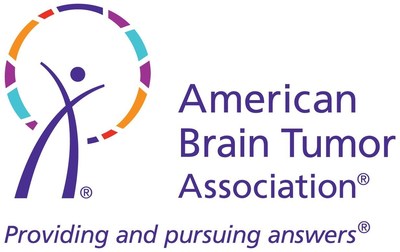Subject: SVY
New Statistical Report Reveals Primary Brain and Central Nervous System Tumors as Second Most Common Cancer Type in Adolescents and Young Adults
While cancer survival has been improving overall, adolescents and young adults between the ages of 15 and 39 have not experienced these same increases in survival.
CHICAGO, May 7, 2024 /PRNewswire/ -- Today, the American Brain Tumor Association (ABTA), in partnership with the National Institutes of Health's National Cancer Institute (NCI) Comprehensive Oncology Network Evaluating Rare CNS Tumors (NCI-CONNECT) program and the Central Brain Tumor Registry of the United States (CBTRUS), unveiled a new report shedding light on the prevalence of primary brain and other central nervous system (CNS) tumors among adolescents and young adults (AYAs) between the ages of 15 and 39. The report, Adolescent and Young Adult Primary Brain and Other Central Nervous System Tumors Diagnosed in the United States, 2016?2020, published in Neuro-Oncology, aims to increase awareness of and insight into an underserved population with unique needs distinct from pediatric and older adult patient populations.
The researchers found primary brain and other CNS tumors are the second most common cancer type in AYAs, with an average of 12,848 individuals diagnosed annually. Over 90 percent survived for at least five years, with approximately 208,620 AYAs living with a history of brain or other CNS tumor diagnosis in 2024. Despite this survival advantage, recent analyses show that while cancer survival has been improving overall, AYAs have not experienced these same increases in survival.
"This is the first statistical report to analyze this unique population while incorporating current tumor classifications based on recent molecular data," said Quinn T. Ostrom, Ph.D., the study's co-senior author, co-principal investigator at CBTRUS, and an assistant professor of neurosurgery at the Duke University School of Medicine. "Understanding the burden of disease and knowing the molecular makeup of tumors is different within this population is a significant step towards improving health outcomes and care."
When diagnosed with primary brain or other CNS tumors, the AYA patient population often experience a difficult transition from pediatric (ages 0-14 years) to adult (ages 40+ years) treatment and care. Not only do AYA brain and other CNS tumors have unique molecular features distinct from pediatric and adult tumors, but this age group is navigating a transitional period in their lives, requiring specialized treatment and support.
"With more than 200,000 AYAs living with a primary brain or other CNS tumor, it's critical for this community to have access to survivorship programs tailored to their specific needs," said Nicole Willmarth, Ph.D., study co-author and the ABTA's chief mission officer. "As we gain a better understanding of the disease and the unique impact upon the lives of the AYA community, the ABTA is committed to expanding our resources to ensure optimal care and support for this age group. Our report is a first step toward that end goal."
Marta Penas-Prado, M.D., study co-author and senior clinician for NCI-CONNECT, added, "As we showed in the report, AYAs of different ages tend to get vastly different CNS tumors. Many of these tumors are very uncommon, which can make these patients feel isolated and alone. As clinicians, we need to help them understand their particular tumors, as well as how to navigate the unique life circumstances this age group experiences."
While a spectrum of issues contribute to a lack of advancements in treatment and care for the AYA community, designing clinical trials tailored to the unique biology of brain and other CNS tumors is critical to reducing disparities within the age group.
"Coupled with the statistical trends in this new report, additional research will help provide more accurate diagnoses, better treatment, and specialized care," said Terri Armstrong, Ph.D., study co-author, senior investigator at the NCI Center for Cancer Research's Neuro-Oncology Branch, and co-leader of NCI-CONNECT. "AYAs should also be given special consideration when designing clinical trial eligibility criteria to better include this population."
American Brain Tumor Association AYA Resources and Support
The ABTA is committed to ensuring the AYA brain tumor community has access to customized educational and emotional support resources to meet their unique needs. ABTA AYA resources include online and in-person educational webinars and meetings, an online support community, a Patient and Caregiver Mentor Support program and a financial assistance program.
About the American Brain Tumor Association
Founded in 1973, the American Brain Tumor Association provides comprehensive resources to support the complex needs of brain tumor patients and caregivers, across all ages and tumor types, as well as the critical funding of research in the pursuit of breakthroughs in brain tumor diagnoses, treatments, and care. To learn more, visit abta.org or call 800-886-ABTA (2282).
SOURCE American Brain Tumor Association
These press releases may also interest you
|
News published on and distributed by:




